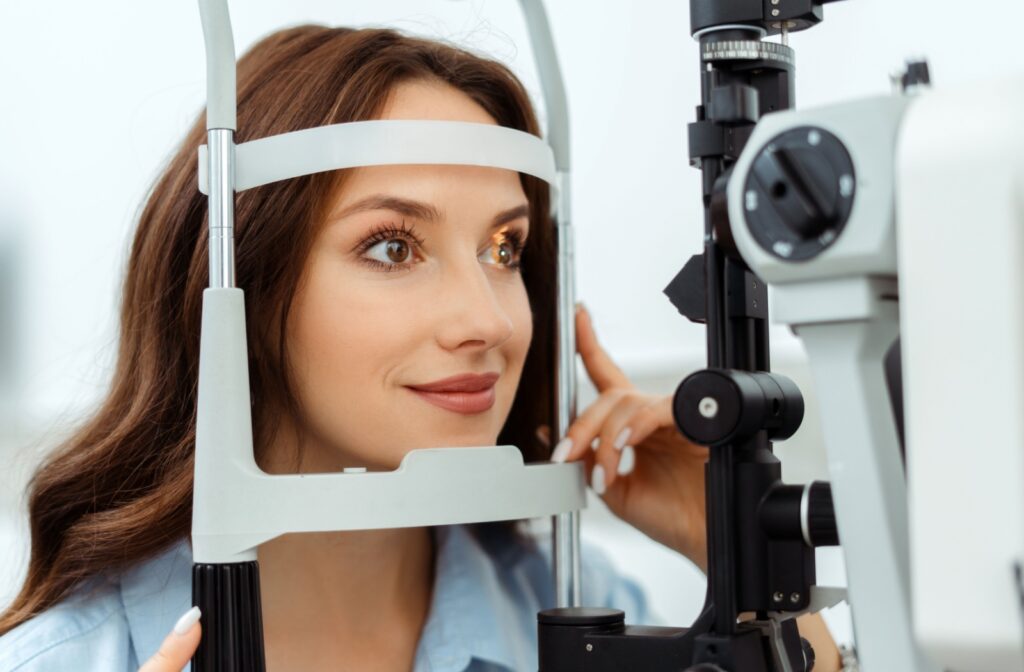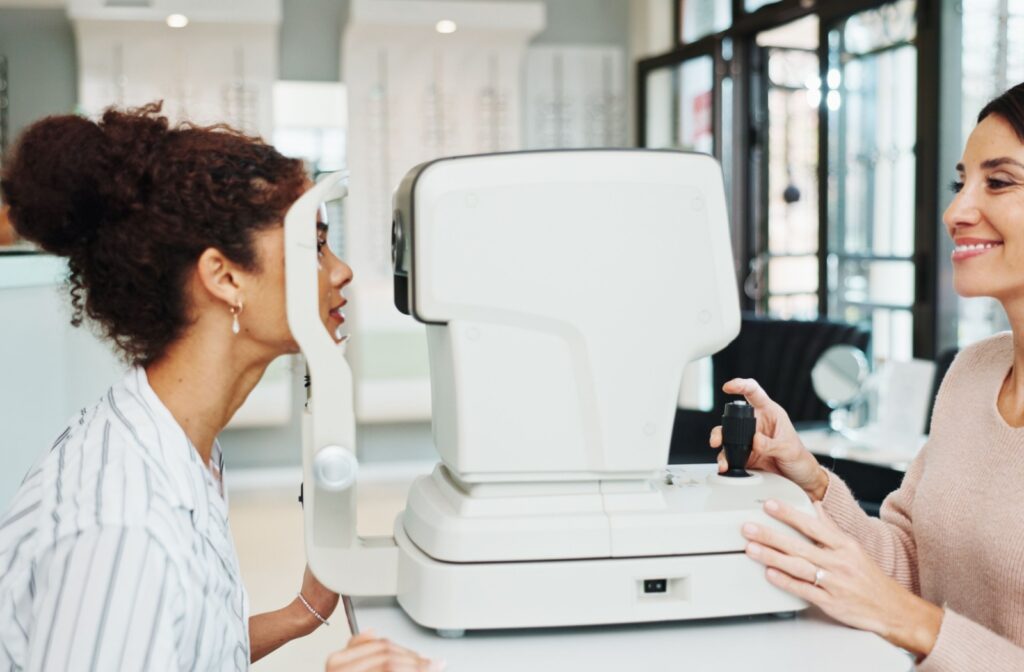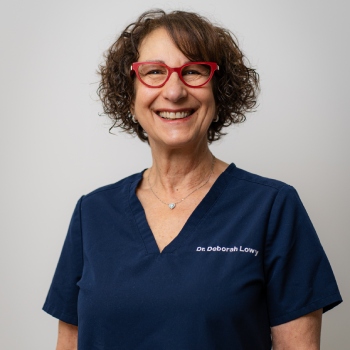An eye exam is much more than a simple vision check to see if you need new glasses.
A comprehensive eye exam is a detailed look into your overall health, offering insight into not only your eyesight but also early signs of underlying conditions. This evaluation examines everything from your visual sharpness to the health of the tissues inside your eye, helping to protect your long-term vision and well-being.
Why a Full Eye Exam Matters
Your eyes can reveal early signs of health concerns, sometimes even before other symptoms appear. Many eye diseases, like glaucoma or macular degeneration, develop gradually without obvious warning signs. A thorough eye exam can help detect these issues early, giving you more options to manage them effectively.
Unlike a quick vision screening, a comprehensive exam is a full evaluation of both your sight and your eye health.
Comprehensive Eye Exams vs. Vision Screenings
You might be familiar with basic vision tests, like the ones at school or for a driver’s licence. These screenings focus mostly on how clearly you see at a distance. They typically don’t assess key parts of your visual system or eye health.
A vision screening may miss:
- How well your eyes work together
- Your side (peripheral) vision
- Internal eye health
- Signs of eye disease, like diabetic retinopathy or cataracts
A full eye exam goes far beyond this; it’s a deep dive into how your eyes function and how healthy they are.
How to Prepare for Your Appointment
A little bit of preparation can help your visit go smoothly. It’s a good idea to have some information ready for your optometrist, including:
- Your current glasses, contact lenses, or a copy of your prescription
- A list of any medications and supplements you currently take
- Notes on any eye symptoms or vision changes you’ve noticed
- Your family’s history of eye conditions like glaucoma or cataracts
- Information on your general health, such as diabetes or high blood pressure
It’s also a good idea to prepare a few questions. Your optometrist will be happy to explain the process or discuss any concerns you may have.
What to Expect During Your Eye Exam
A comprehensive exam can take between 60 and 90 minutes and includes multiple tests to check different parts of your visual system.
Your Health & Vision History
The exam starts with a conversation about you. Your optometrist will ask about your current health, any vision problems you’re experiencing, and your family’s medical history. This helps them get a complete picture of your needs.
Testing Your Vision
These tests check how sharp your vision is and help determine your prescription for glasses or contacts. This part of the exam usually includes:
- Visual acuity: You’ll read letters on a chart from both near and far to measure how clearly each eye sees.
- Refraction: You’ll look through various lenses to find your most accurate prescription. This helps diagnose nearsightedness, farsightedness, and astigmatism.
Assessing Eye Function
Your optometrist will evaluate how well your eyes work together to provide clear vision. This may include:
- Depth perception
- Colour vision
- Eye muscle coordination
- Peripheral vision
A Look at Your Eye Health
Your optometrist will use modern tools to check the internal and external health of your eyes.
- Slit lamp exam: A specialized microscope gives a close-up view of your eye’s front structures: cornea, iris, and lens.
- Tonometry: This measures the pressure inside your eye and helps detect risk for glaucoma.

Pupil Dilation (If Needed)
In some cases, your optometrist may use special eye drops to widen your pupils. A dilated eye exam provides a clearer view of the back of your eye, including the retina and optic nerve, and is an important part of a full health check.
The effects are temporary but can cause light sensitivity and blurry near vision for a few hours. It’s a good idea to bring sunglasses for your trip home.
After the Exam: Understanding Your Results
Once your tests are complete, your optometrist will review the results with you, explain what they found, and answer any questions. If needed, they’ll recommend a care plan that may include:
- A new prescription
- Lifestyle or dietary changes
- Follow-ups or referrals to a specialist
How Often You Need an Exam
For adults between 19 and 64, an eye exam is generally recommended at least every 2 years. If you have certain risk factors, such as a family history of eye disease, diabetes, or if you wear contact lenses, your optometrist may suggest more frequent visits. We recommend that adults 65 and older have an exam at least once a year.
Children should have their first eye exam between 6 and 12 months of age. We recommend another exam between the ages of 3 and 5, and then yearly once they start school.
Take Care of Your Vision
At Lowy & Sewell Eye Care, we believe in getting to know our patients and offering care that fits your life. Our team in Vaughan is here to support your long-term vision and overall health through personalized, technology-driven exams. If it’s time for your next comprehensive eye exam, we invite you to book an appointment today.



